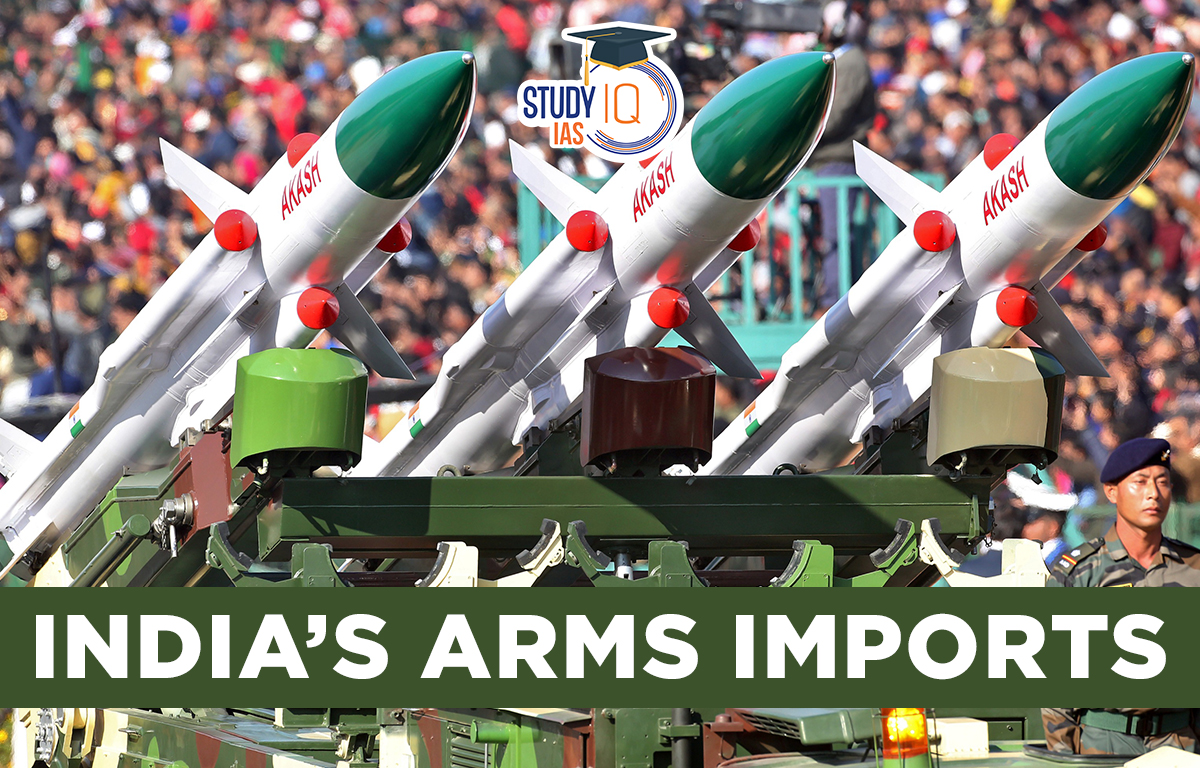Table of Contents
Context: According to the Stockholm International Peace Research Institute (SIPRI) report, India has remained the world’s largest arms importer for the five-year period between 2018 and 2022.
- The report adds that arms imports of India dropped by 11% between 2013-2017 and 2018-2022.
- France was the second largest source of imports for India at (29%) and the U.S. was third (11%).
- Russian export of arms: Majority of Russian exports went to three states from 2018 to 2022 — India (31%), China (23%) and Egypt (9.3%).
- Russia was the largest arms supplier to India from 2013 to 2022, but its total share dropped from 64% to 45%, owing to competition from other countries and also the Ukraine war.
- International trends: Imports of major arms by European states grew by 47 per cent between 2013-17 and 2018-22 in the backdrop of the war in Ukraine.
Facts on India’s Arms Market
- Import trends:
- India was the biggest arms export destination to three countries — Russia, France and Israel.
- India’s import from France increased by 489% between 2013 to 2017 and 2018 to 2022, mainly due to Fighter jets and Submarines.
- India was the second largest export market to South Korea and the third largest export market for South Africa.
- Reasons for India’s arms imports: The main reason for driving arms imports were India’s tensions with Pakistan and China.
- Export trends:
- In the last five years, military exports have jumped by 334%, involving more than 75 countries.
- Countries such as US, the Philippines and other nations in South-East Asia, the Middle East and Africa are the major destinations.
- India was the third largest arms supplier to Myanmar after Russia and China (14% of its imports).
- Reasons for import decline:
- India’s slow and complex arms procurement process
- Diversifying its arms suppliers
- Replacing imports with arms that are produced domestically.
Stockholm International Peace Research Institute (SIPRI)
- SIPRI is a Stockholm-based independent international institute that conducts research into conflict, armaments, arms control and disarmament.
- It provides data, analysis and recommendations, is based on open-source research, to policymakers, analyzers, media and the interested public.
Additional Information
- Government measures to boost indigenous production of defence equipments:
- Priority to the procurement of capital goods from domestic sources under Defence Acquisition Procedure (DAP)-2020.
- Developing defense platforms for industry-led design and development
- Liberalization of foreign direct investment (FDI) policy in defence manufacturing.
- Notifying Positive Indigenisation Lists (PIL) of sub-systems/assemblies/sub-assemblies/ components.
- Simplification of process of obtaining license for defence production.


 Daily Quiz 17 April 2025
Daily Quiz 17 April 2025
 Nilgiri Biosphere Reserve, Map, Climate,...
Nilgiri Biosphere Reserve, Map, Climate,...
 Complete List of Indian State Animals
Complete List of Indian State Animals





















